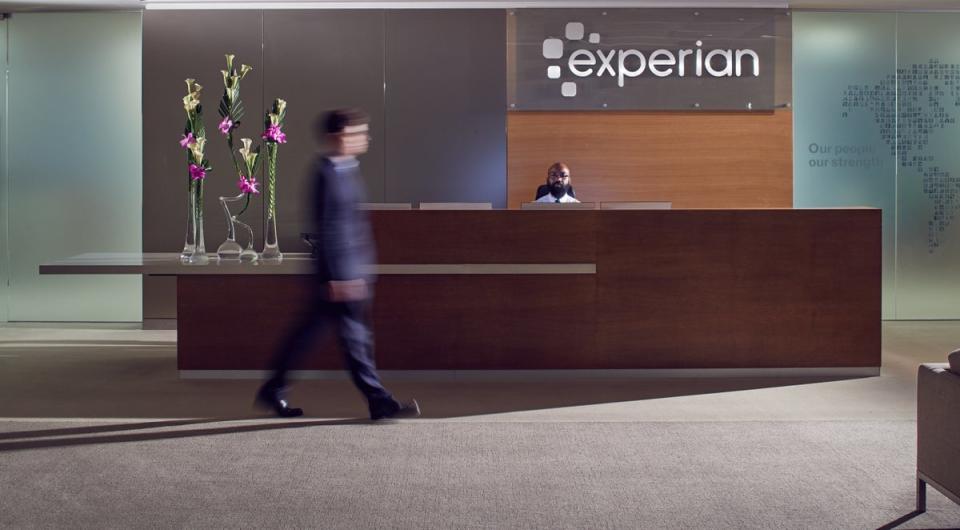Office attendance on a Friday is picking up, figures suggest

London workers are starting to attend their offices on Fridays more, new figures suggest, but the return is a “slow crawl back rather than a rush” to pre-pandemic levels....
As we approach the fourth anniversary of the UK's first Covid lockdown, numerous employers are looking at how their office use has changed, for better or worse, and considering what the next steps are on how their working week model should look.
First there was WFH (working from home) with people ordered to do their jobs remotely where possible, then as pandemic rules loosened TWaT (Tuesdays, Wednesdays and Thursdays) in headquarters was embraced as hybrid working became flavour of the month, well flavour of the last three years. But could FOW (Friday Office Work) be the latest acronym HR bosses have on their radar?
That last acronym for office days is one quickly drawn up by yours truly, so may not be widely adopted, but the meaning certainly looks to be gaining popularity. After years of the capital's office areas and stations looking very quiet on a Friday, latest figures suggest more workers are now making the commute into towns at the end of the week.
But is this a temporary boost or longer term? And are UK employers leading the march back to Friday office working or leaving staff to do jobs remotely at the end of the typical working week?
Looking at latest numbers points to busier workspaces on a Friday. Property giant Landsec, which owns just over six million sq ft of office space, of which around 95% is in London, reveals in January it saw the number of people coming into the office across its portfolio on a Friday rise to its highest level since 2022.
A spokesman for the developer adds: "Whilst mid-week is undoubtably the most popular time for people to come together, on a like for like basis, the amount of unique daily turnstile tap-ins at our workspaces continues to grow across the week.”
At flexible space provider Workspace, SMEs have long embraced three-to four days a week in as the normal, including pre-pandemic. But Will Abbott, the landlord's chief customer officer says: “We have however seen the number of customers working from work on Fridays rise over the past year. Many of our customers are in creative and design-based industries such as podcast production and fashion design, which means they don’t just work at rows of desks, and use their space throughout the week, including Fridays."
Meanwhile data compiled for the Evening Standard by job search engine Adzuna found the number of UK postings advertising that Fridays can be worked from home was 123 last month. That was a dip on 135 recorded in January 2023. During the same period the number of recruitment adverts offering 'early finish Fridays' dropped to 396 from 429.
However, a mix of office and remote working still remains popular, with the proportion of vacancies specifying that they are hybrid standing at 11.4% from 11.6% a year earlier.
Adzuna co-founder Andrew Hunter says: “Cities up and down the country are starting to buzz again all week long, as workers ramp up their days in the office. In particular, fewer companies are advertising that employees can work from home on Fridays or clock off early for the weekend, but we’re seeing a slow crawl back to Fridays in the office, rather than a rush."
Fewer companies are advertising that employees can work from home on Fridays or clock off early for the weekend
Adzuna co-founder Andrew Hunter
There are examples of some businesses putting their foot down when it comes to showing your face in the office on a Friday, such as French beauty giant L'Oréal. The Sunday Times reported earlier this month that the firm, whose London head office in White City, has told employees to come to the office at least two Fridays a month. Staff are required to be in offices three days per week typically.
However among FTSE 100 companies there appears to be no obvious signs of compulsory attendance in workspaces on a Friday. The Evening Standard spoke to various members of London's blue chip index about how many days staff are in per week and if they have encouraged or mandated that employees come into the office on a Friday. Of the respondents, which span sectors such as venture capital, telecoms, retail and more, hybrid working continues to be popular and FOW (Friday Office Work) is not enforced.
Take data technology company Experian UK&I where it is recommended teams are in twice a week. Chief people officer Rachel Duncan says: "We haven’t and don’t intend to mandate a return to the office, our hybrid approach to working is well established." Tesco does not mandate which days, but teams often meet in person around two days per week, while at asset manager M&G workers have been asked to attend an office on three days per week by the end of 2024. A company spokesman adds: "Our approach is based on trust, communication and flexibility."
At software group Sage staff tend to work from the firm’s offices around two to three days per week in support of a framework called Flexible Human Work (there is flexibility as to what these days are).
“This is based on team agreements and focused on outcomes and trust, it allows teams to experiment with how, when and where they work. This supports our aim to unlock flexibility across all areas of our operations, as well as attracting and retaining a more diverse range of talent,” a spokesman says.

On the small business side, Nick Thornton who leads PR agency Aver says the team of around 10 has agreed a policy to work the same three days in the office weekly.
He found that at first people would come in at various points and it "became clear very quickly this was not the right approach; we had too many days with too few people together to properly function as either a team or a company with a shared culture".
Thornton says: "Switching to the same three days, which we put to a team vote to determine the combination of days, was absolutely the right thing to do." There is no requirement to be in town on a Friday, but the team all understand that, if a meeting necessitates it, they will be in the office on a Friday.
While those that get the tube or train in on a Friday may observe journeys look a little busier, the once regular experience of packed carriages in zone one are still a distant memory in many cases at the end of the week. Central London retailers and restaurants would certainly welcome more office workers back in.


